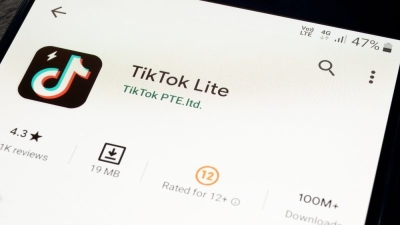EU launches first round of tenders to jointly buy gas

The European Commission on Wednesday (10 May) launched the first round of tenders for gas sellers to link with EU buyers on the joint gas purchasing platform to help maintain security of supply and tackle high energy prices.
“This is a historic milestone. Because for the first time ever, we are leveraging the EU’s collective economic weight to increase our energy security and tackle high gas prices,” said Vice-President Maroš Šefčovič as he announced the tender process.
The platform aims to match up EU companies’ gas needs with international buyers to ensure Europe has enough gas to make it through the winter. The first round of demand has already been submitted and the first tendering process is now open until 15 May to cover deliveries between June 2023 and May 2024.
Under the gas storage law, EU countries are obliged to use the platform for at least 15% of their needs, equalling 13.5 billion cubic metres (bcm) of gas.
European companies have already submitted requests for a total of 11.6 bcm in the first round, just shy of the overall goal, according to Šefčovič. This breaks down as a request for 2.8 bcm via liquified natural gas (LNG) and almost 9.6 bcm via pipeline.
“The response of the market has been positive and encouraging […] 77 European companies have submitted requests for a total volume of some 11.6 billion cubic metres of gas,” said Šefčovič, inviting “all reliable international suppliers” to submit bids.
According to Šefčovič, there is already “very solid interest” from international suppliers in this new market, which covers EU countries and those in the Energy Community, such as Ukraine, Moldova and the Western Balkans.
After the tender process, matched buyers and sellers will start negotiations, which will “hopefully lead to commercial contracts” and potentially longer term relationships, said Šefčovič.

To buy or not to buy: Europe’s joint gas purchasing
Welcome to EURACTIV’s Green Brief, our weekly selection of energy and environment news from across Europe. To subscribe, follow this link. You can also subscribe to our daily newsletter here and to our comprehensive weekly update here.
The …
New marketplace for gas
International gas markets are extremely tight with many LNG contracts already bought up, leaving Europe in a vulnerable position when it comes to ensuring gas supplies for this year and enough gas in storage for the winter.
Speaking to EURACTIV previously, Simone Tagliapietra from the economic think tank Bruegel said that the platform is a good step, but the question of whether there are enough incentives to encourage its use remains.
“The big question for me is whether it will actually work to attract significant volumes because we know that particularly the big players may not have interest in being part of this initiative,” he said.
The platform is designed to leverage Europe’s buying power and make it a stronger competitor as well as avoid EU countries outbidding each other and pushing up prices.
According to Šefčovič, it is very important that sellers offer both adequate volumes and good prices “because we still need to push the gas prices in Europe into the lower territory to keep up the competitiveness of European industry”.
Asked by EURACTIV why international companies would sell to the EU rather than using other markets, Šefčovič said Europe is the “most important gas customer in global terms”.
“We are doing enormous work […] to aggregate demand from very often smaller players, SMEs, from all the member states and put it on the platform, so that international bidders see it, so we are actually doing this prospective of the market work for them,” he said.
“We do all this for free, so this enormous effort in prospecting for eventual customers, bringing new customers to the market and actually doing a lot of leg work for the companies who want to sell gas, I think, is very much welcome,” he added.
The tendering process will be repeated every two months until the end of the year. Already, companies from the “overwhelming majority” of EU countries have used the platform and the rest will need to by the end of the year, according to the European Commission.
Read more with EURACTIV




